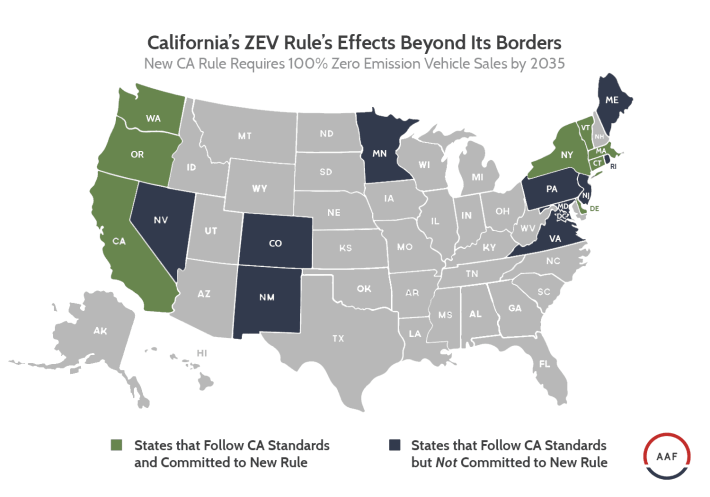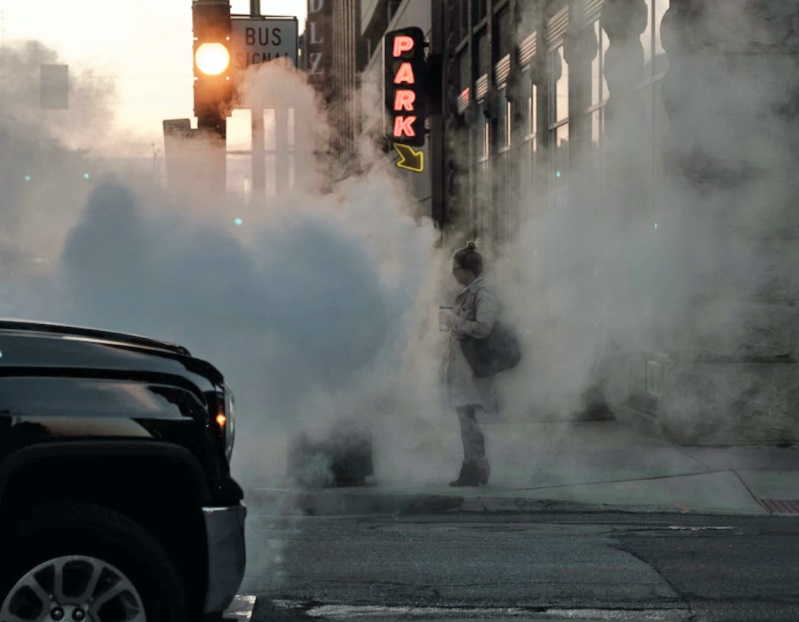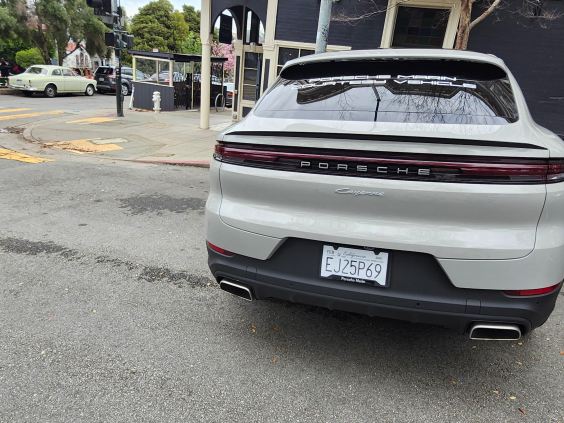This week, a bi-partisan coalition of the United States House of Representatives passed a pair of resolutions rescinding three EPA permits that allow California to regulate emission standards for diesel trucks and set sales requirements for electric personal vehicles and freight trucks.
"By passing these resolutions, the House made it clear that we won't let one state’s radical agenda dictate what Americans can drive,” testified Rep. Doug LeMalfa (R-CA), who represents the area north of Sacramento to the border with Oregon. “People deserve the freedom to choose the vehicles that works best for them—not to be forced into unaffordable electric vehicles that may not work for them.”
Because California was regulating air quality issues decades before the federal government, it is the only state that can get a waiver from the Feds to set more stringent standards. Other states are allowed to match the California standards, creating two-sets of air quality measures across the country.

Under the Congressional Review Act (CRA), passed in 1996, Congress has a short window to review and even revoke rules created by federal review agencies. The CRA has been invoked 20 times, 16 of them during the first Trump Administration. Should the Senate also pass resolutions revoking the EPA permits and they are signed by President Trump, California has already announced they would seek a legal remedy claiming that waivers from the EPA fall outside of the Congressional Review Act. The nonpartisan Government Accountability office has already issued an opinion agreeing with California.
“For more than fifty years, California has exercised its rights under the Clean Air Act to pursue solutions to address the persistent air pollution challenges our state faces,” wrote California Attorney General Rob Bonta. “The Congressional Review Act was designed to provide a mechanism for congressional oversight of new rules by federal agencies – not for partisan attacks on duly-adopted state laws.”
If the Senate follows the House’s lead and California loses in court, it would be a disaster for the state’s plans to reduce Greenhouse Gas Emissions.
Of the three waivers that are being disputed, the most controversial and far-reaching one requires that 35% of all cars sold by every auto manufacturer in California are electric vehicles and phases out the sale of gas-powered new cars completely by 2035.
Rescinding this waiver proved controversial inside the auto-industry with some manufacturers claiming it would be impossible to meet that goal especially since the infrastructure to support EVs isn’t universally available.
However, as these standards have existed for nearly a decade, several manufacturers have already made investments to support meeting the 35% sales target.
The other two regulations apply only to freight trucks.
California Governor Gavin Newsom signed an executive order in 2020, that mandates that all operations of medium- and heavy-duty vehicles be zero-emission where feasible, shifting away from diesel-powered trucks by 2045.
The last waiver mandates that a low-carbon, but more expensive, diesel fuel be used in freight trucks in California.
“Heavy duty truck emissions create air quality issues that impact the health of my constituents and contribute to climate change,” pleaded Rep. Doris Matsui (D-CA) before the vote. “California’s emission standards are a matter of life and death—that’s why I’ve spent my career in Congress fighting for these standards.”
Both of the waivers involving freight trucks were approved by the EPA in the Biden Administration. The one concerning a transition to personal electric vehicles was approved in the Obama administration, rescinded in the first Trump Administration, and while the legal battle over its revocation was still being waged was re-approved during the Biden Administration.
By using the CRA instead of simply having the Trump-led EPA revoke the waiver again, Republicans hope to end the back-and-forth over the waiver should the Democrats retake the White House.






